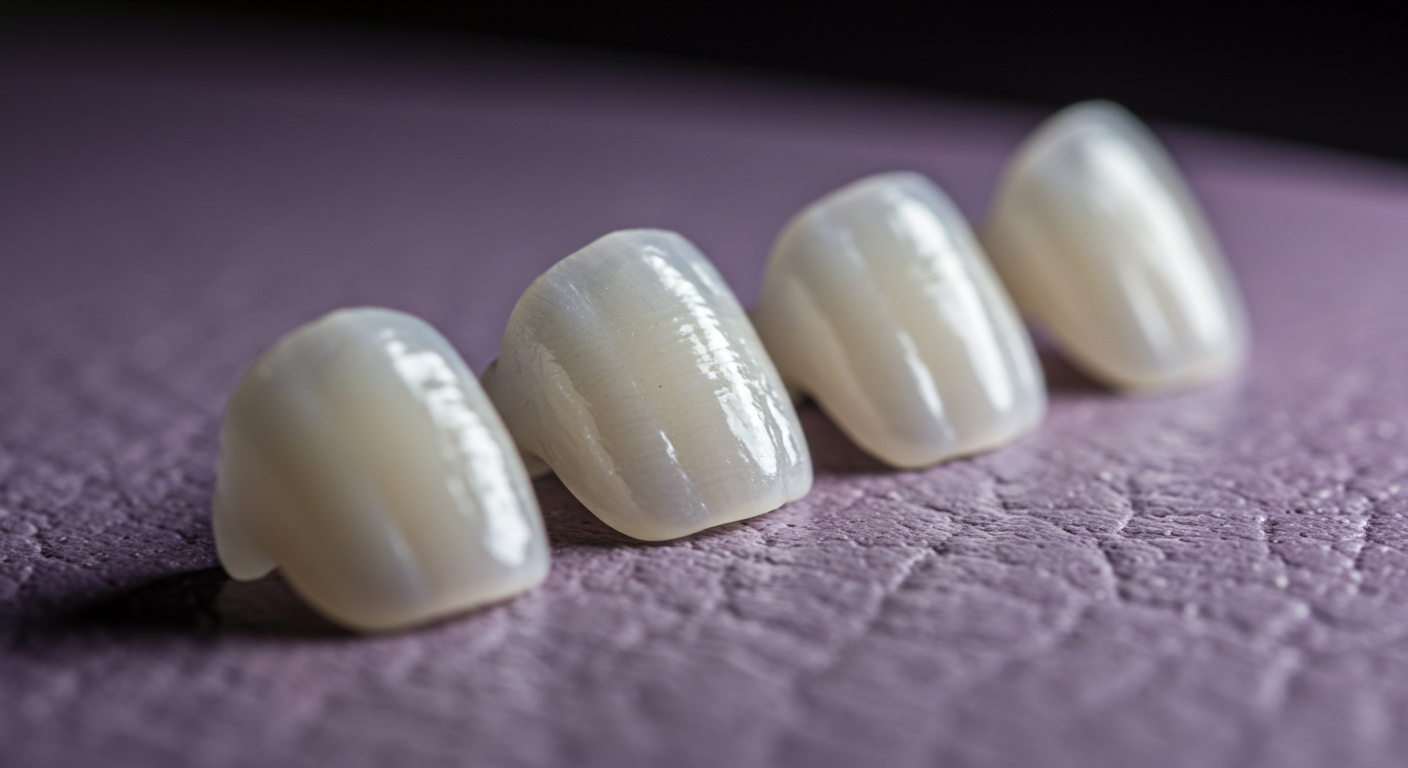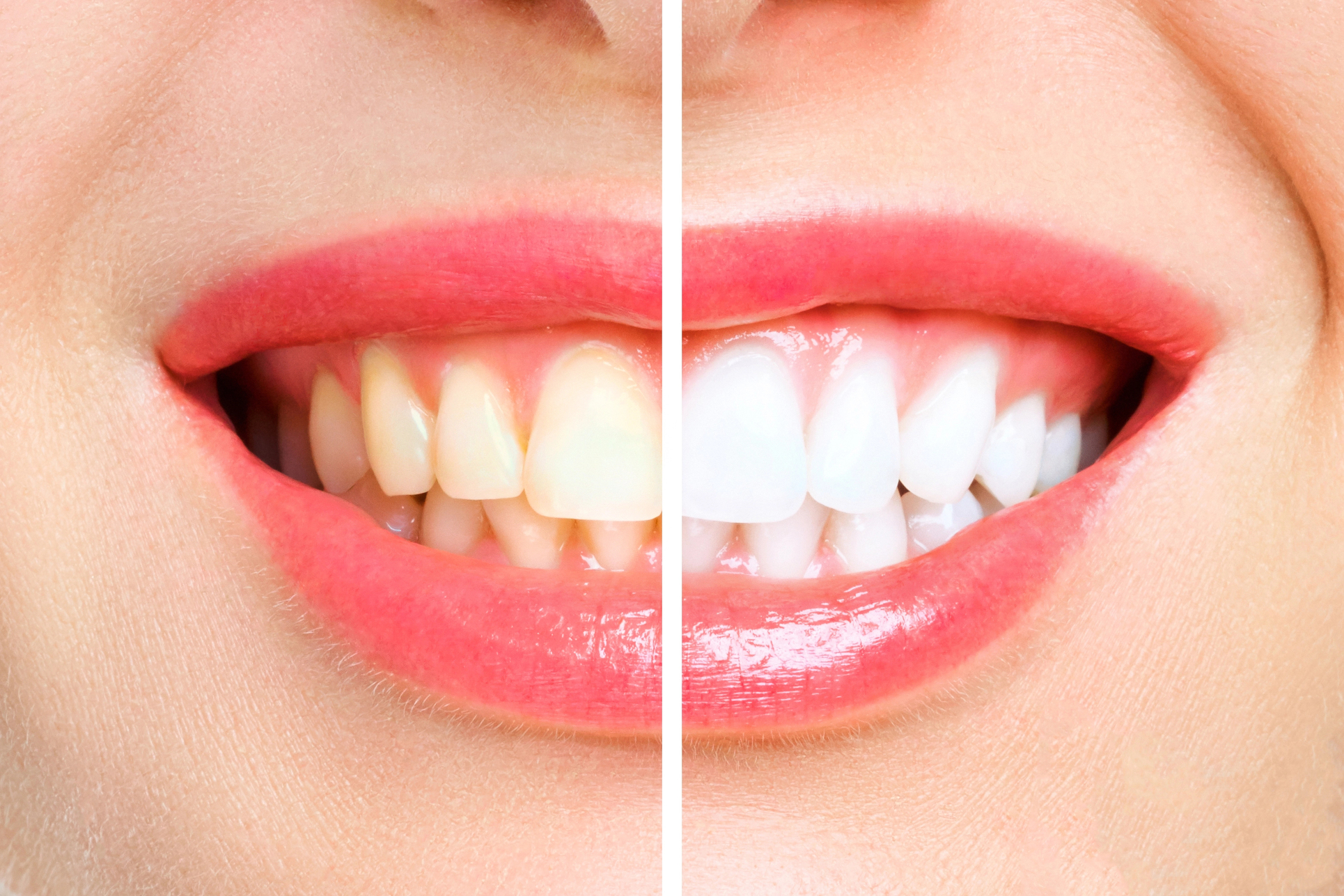Contents

Composite (Resin) Veneers: Complete 2025 Guide - Updated Costs, Procedure, Lifespan & Reviews
Dreaming of a more harmonious and brilliant smile in 2025? Composite dental veneers, often called resin veneers or dental bonding, remain a top choice in cosmetic dentistry. Known for their quick application and often less invasive approach, they effectively correct various flaws like color, shape, or minor misalignments.
But what is the current state of composite veneers? This detailed and updated guide answers your questions, analyzes the pros and cons, and helps you make an informed choice.
Composite Veneers: The Essentials
A fast, minimally invasive cosmetic solution often completed in one visit. Average cost: $250 - $1,500 per tooth. Lifespan: 5 to 7 years with excellent care. Prone to staining, requiring meticulous maintenance.
What Are Composite (or Resin) Veneers?
A composite veneer is a thin layer of tooth-colored composite resin material that is sculpted and bonded directly onto the front surface of a tooth. This is often referred to as "dental bonding." Unlike porcelain veneers, which are fabricated in a lab, composite veneers are typically built up directly in the mouth by a skilled cosmetic dentist in a single appointment.
What Are Composite Veneers Used For? Main Indications
Composite veneers are an excellent solution for correcting a variety of cosmetic dental issues:
- Color Correction: To mask stains that are resistant to teeth whitening.
- Shape Improvement: To repair chipped, worn, or slightly misshapen teeth.
- Closing Gaps (Diastemas): To fill small to medium spaces between teeth.
- Correcting Minor Misalignments: To create the illusion of straightness for slightly crooked teeth, though it is not a substitute for orthodontics.

How Are Composite Veneers Placed? The Direct Bonding Technique
The procedure is an art form that is typically completed in a single appointment:
- Consultation and Planning: The process begins with a detailed discussion of your goals and a precise shade selection to match your natural teeth.
- Minimal Tooth Preparation: In most cases, little to no enamel needs to be removed. The dentist will slightly roughen the tooth surface with a mild etching solution to help the resin bond securely.
- Bonding and Sculpting: The dentist applies the putty-like composite resin in layers, skillfully sculpting and shaping it to create the desired look.
- Curing: A special high-intensity curing light is used to harden each layer of resin.
- Finishing and Polishing: The final step involves shaping and polishing the hardened resin to achieve a smooth, natural, and lustrous finish that blends seamlessly with your smile.
Maintenance: How to Maximize the Lifespan of Your Composite Veneers
Rigorous care is essential to preserve the aesthetics and longevity of your resin veneers:
- Impeccable Oral Hygiene: Brush gently with a soft-bristled toothbrush and a non-abrasive toothpaste. Floss daily.
- Dietary Awareness: Minimize highly staining foods and drinks like coffee, tea, red wine, and tobacco.
- Avoid Bad Habits: Do not bite your nails, chew on pens, or use your teeth to open packages, as this can chip the resin.
- Regular Professional Polishing: This is key. An annual professional polishing by your dentist is crucial to remove surface stains and maintain the shine.
Composite vs. Porcelain Veneers: A Head-to-Head Comparison
| Feature | Composite Veneers | Porcelain Veneers |
|---|---|---|
| Cost | More affordable ($250-$1,500/tooth) | More expensive ($925-$2,500+/tooth) |
| Lifespan | 5-7 years | 10-20+ years |
| Stain Resistance | Porous and can stain over time | Highly stain-resistant |
| Procedure | Single visit, minimally invasive | Two or more visits, requires enamel removal |
| Repairability | Easily repaired if chipped | Must be fully replaced if damaged |
What is the Real Lifespan of Composite Veneers in 2025?
The average lifespan of composite veneers is around 5 to 7 years. Reaching or exceeding this depends on the quality of the material used, the skill of the dentist, and, most importantly, the patient's oral hygiene and dietary habits. Regular professional polishing is crucial to maintaining their appearance.
What is the Updated Cost of Composite Veneers in the US (2025)?
In 2025, the average cost of a composite veneer in the United States typically ranges from $250 to $1,500 per tooth. This wide range is influenced by the dentist's expertise in cosmetic procedures and the geographic location of the practice.
Because veneers are considered a cosmetic procedure, they are almost never covered by dental insurance. You should expect this to be an out-of-pocket expense.
Who Is a Good Candidate for Composite Veneers?
The ideal candidate is someone seeking a fast, conservative, and moderately priced cosmetic improvement for mild to moderate flaws. They must have good oral hygiene and be committed to the regular maintenance required to keep the veneers looking their best. It is not a suitable solution for major alignment issues or for patients with heavy teeth grinding habits (bruxism).
Conclusion: Are Composite Veneers the Right Choice for You?
Yes, composite veneers remain an excellent, accessible option for many patients wanting to quickly and conservatively improve their smile. Their primary advantages are the preservation of tooth enamel and a more affordable price point. However, their shorter lifespan and susceptibility to staining require a strong commitment to maintenance. An in-depth consultation with a skilled cosmetic dentist is the essential first step to determine if this solution is right for you.
FAQ: Your Top Questions About Composite Veneers
No, when placed properly, composite veneers do not ruin your teeth. In fact, they are one of the most conservative cosmetic treatments because little to no enamel is removed. The underlying tooth remains healthy and intact.
No, the composite resin material does not respond to teeth whitening agents. If you plan to whiten your teeth, you should do so before having composite veneers placed so the resin can be matched to your newly whitened smile.
The procedure is typically painless and often does not require anesthesia, as there is little to no removal of sensitive tooth structure. Patients generally report a comfortable experience.
One of the biggest advantages of composite veneers is their repairability. If a small chip occurs, a dentist can easily bond new composite material to the existing veneer to repair it, often in a single, quick appointment.
